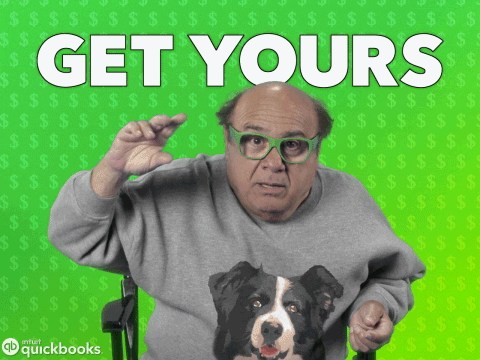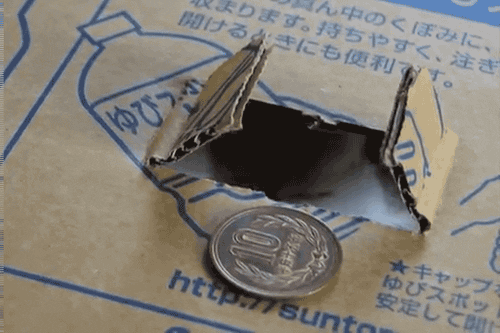The Business of Indie Game Trailers
I received a bunch of great questions from a reader who just started making trailers for indie video games. If you're in a similar position this is the post you've been waiting for. Even if you're not specifically looking to be a trailer maker, this should help you get started as a freelancer or service based creative business owner, or just give you a peek behind the scenes.
This is an extra beefy newsletter because there was so much to say in response to the questions. The last section on pricing is nearly half of this entire newsletter. The whole newsletter should take you about 25 minutes to finish reading O_O
Building a Reel From Nothing
Q: How do I build a portfolio/reel impressive enough to get someone to hire me to make them a trailer?
Make fan trailers! If you want to sound more professional you can call them "spec trailers" which means they were made on your own unpaid time in hopes of either selling them, or getting noticed by potential clients. If you're in school or working an unrelated full time job, you need to practice somehow, and aside from client work, making fan trailers is the best thing you can do.
Games have an advantage over movies in this regard because so many of them have options to turn off sound and music. This means you can capture footage with clean audio to edit either story or gameplay trailers. You just need a PC and/or a capture device to hook up a console to your computer.
Just because fan trailers aren't made for paying clients, doesn't mean they're not a legitimate indicator of skill. The fan trailers I made over the years helped me get my foot in the door at a number of editing jobs I successfully got hired at. I'll caveat this by saying I got these jobs with a combination of my fan trailers, and work experience at trailer houses and post-production jobs.
I made this fan trailer because I loved the game and the official trailers didn't feel true to its story and tone
Once you get some jobs, you want put as much paid work on your reel as possible! People hiring someone to make their trailer want the least risky option possible. The less paid work you have, the more risky you appear, because there's no proof you can deliver a good trailer on a deadline while working with a client. The higher the game's budget, the less likely they're going to risk hiring someone with less experience. Just start with “spec trailers” on your website if that’s all you have, and then as you get paid work, put that at the top, and gradually phase out the spec work over time.
Q: What are the best ways to make yourself stand out?
First of all, you need a website or at least a reel or playlist featuring some game trailers you've made. If your entire online presence is not related to game trailers, or barely shows any of your interest in making game trailers, why would someone hire you? If you went to a restaurant which serves Korean, Thai, Vietnamese, Japanese, Chinese and Mexican food, would you go there expecting any one of those to be great? What if you went to a Japanese restaurant? Or a ramen place? Or a place which only served tonkotsu ramen?
The website and reel are the bare essentials. The next best thing you can do is document your process as much as you can! Yes, even if you still consider yourself an amateur. Analyzing and recording your process will help you make better trailers, and solidify your knowledge. Writing out your process in blog posts shows potential clients your thought process which helps them see how you work which is at least as important as the quality of the work you produce. Showing what you're like to work with can be a way to reduce the risk of hiring you. Sharing your process will also help other people make their own trailers!
I write case studies for my trailers because I want to de-mystify the process, and I also love to read behind-the-scenes articles about how things are made. There's so little writing about trailer making, I feel obligated to share as much as possible since I'm in a position to fill in that void. I also do it because I would've LOVED to read these sorts of articles early in my career. I can only assume other people getting in might be interested too!
This behind the scenes look at working on a VR trailer hopefully shows my resourcefulness
Q: Who should you reach out to? Developers, Publishers or perhaps some other source?
Developers are who you should reach out to first if you're just getting started in indie games. Publishers are going to want to work with more experienced trailer makers since Publishers have bigger budgets and a much more selective catalog. That said, don't disqualify yourself from reaching out to any potential clients; let the other person do it for you. At worst you get no response, at best they might give you some comments, and suggest getting back to them when you have more work under your belt.
Also, treat people like they're people when you're online! Don't beg for work, spam accounts, or say things you wouldn't in real life; when you're on Twitter imagine you're in the same room with the person, and act accordingly. Show genuine interest in their work and show appreciation; if it feels like you're forcing it, you probably are. If you make a cool video for someone's game, tag them in your tweet and they might notice! But don't do it with the expectation of attention; no one owes it to you.
Put yourself in a place where people are looking for someone with your services! It can be at conventions, gamedev forums, subreddits etc. If you're posting online just make sure you're not breaking community self-promotion rules. In person, be genuine, talk and make friends. Don't treat interactions as transactional (for more on this read Victoria Tran's great post about networking as an introvert). It's very obvious when someone is talking to you to get something out of you, as opposed to someone genuinely interested in getting to know you because they want to without expectations.
Participate in game jams! Offer to make a trailer for someone's small experimental game. Game jams are all about getting experience making things rather than worrying about commercial products and getting paid. You never know if someone you work with on a small thing will be working on a big thing some day.
Getting yourself known is a very slow process. Find a way to help other people using your expertise or niche interest. For example, @SunhiLegend makes animated GIFs of his gameplay just for fun, and developed a huge following which eventually led to real game capture work and he now works there full time!
This is one of the first professional jobs SunhiLegend got. Years later he was hired FULL TIME by Guerilla Games
Q: Should you offer your services for free when building a portfolio?
In general, my answer is NO! Especially if your trailer is being used to sell a commercial game. If it's being used to sell, that means your work has value. Anyone offering exposure or promise of future work should generally be avoided. If their exposure is worth anything, they would be able to pay you; a person with 100 followers on Twitter isn't going to give you very valuable exposure. Creative jobs are jobs even if they're something you enjoy doing. Would you accept a cashier job if the hiring manager said to you: "You'll get so much exposure and face time with potential clients from this job!"
No, of course not. So why should you do the same for your specialized skills?
That said, even though fan trailers are "free" work, they're great to do because those trailers are free work made for YOU, not a client. If you're not getting paid, you might as well work on your personal projects.
Q: How big should your portfolio be before reaching out for paid gigs?
It depends on whether or not a potential client can determine if you're a good fit based on your work. For example, I can look at one or two trailers by one person, and feel like I have a pretty good handle on their level of experience; if a potential client can't to do that, it might take more proof.
Your reel needs finished works representative of the projects you want to work on. For example, if you want to work on games like Firewatch, but all your trailers are for vertically scrolling shoot-em-ups then it will be harder for the client to imagine how your skills would be beneficial to them. By the same token, a bunch of trailers for games like Dear Esther might not be enough proof for someone who needs a trailer for their action game. If you only want to work in two genres, then you need at least one example of a trailer for a game in each of those genres.
Q: Where do you get your daily dose of new game trailers?
I'm subscribed to these YouTube channels:
Game Trailers
Nintendo
PlayStation
Xbox
On Twitter I also follow Notable Releases which is a curated feed of new games coming out on PC or console. Another account I follow on Twitter is @microtrailers which has bot-created 6-second trailers for every new Steam release. This account is more just to get a quick look at what sort of new things are coming out, and how well they communicate in random clips.
By the way, I stream and critique new game trailers on Twitch on Fridays! If you're not already watching, please follow me so you'll get notified when I go live!
CLIENT RELATIONSHIPS
Q: How did you start approaching devs/publishers to sell your services before getting a name for yourself as The Trailer Guy in the industry? I tend to struggle with social situations be it in person or online, thus, any tips would be greatly appreciated!
I didn't truly start building my reputation with indies until O.G. indie game trailer maker Kert Gartner started sending me his overflow work which he didn't have time to take on; to this day I'm endlessly grateful for this!!!
At that time I'd made trailers for The Behemoth (which I got via personal connections) and also spent over a year editing trailers at Hammer Creative in Los Angeles. I had a bunch of AAA game trailers on my reel, but only a little indie work. It was a very gradual process of taking work sent to me from Kert, doing the work, and getting good word of mouth.
I've gone to a lot of PAXes and trade shows where I handed out business cards at booths for interesting games, but to be honest I received very very little work from those cards. The most fruitful thing I've done is simply meeting people, being genuinely enthusiastic online, and making friends at shows!
I've loved indie games for a long time; it's so much fun for me to meet the developers who made them, and show my appreciation either online on Twitter or in person should I have the opportunity to meet them. I always laugh a bit when people find out what I do for work, and then they ask me: "But do you play games?" I'm sure there must be someone out there making game trailers whose heart isn't completely in it, but I'm not one of those people!
I'm also very introverted, but with a good introduction at a social gathering I can usually have a great conversation (people who give good intros are HEROES!). If someone is curious about what I do, I can talk their ear off for days. Meet people at every opportunity, share your enthusiasm on Twitter, and WRITE about what you know or are currently learning!
Meeting other trailer makers can help you too, because if you have good work, you never know if a friend might have something for you which they don't have the bandwidth to work on. Since referrals were key to the beginning of my indie game trailer making career I always send referrals for jobs I don't take on. At this point I get more requests than I can take, so I'm constantly looking for trailer makers with good work so I can confidently send potential clients to them!
Q: What things should you, as the trailer guy, keep in mind when talking with creators about their baby, or how to showcase said baby to the world?
Listen to what is most important to the creators about their game. Why did they make the game? What distinguishes it from other games? What excites them about it? Who is their game's target audience? Make your work authentic to the game, and the creator's ambitions for it.
That said, if you see something about their game which they've lost sight of, you should bring it up. They might've forgotten one part of their game which is super cool to you, but commonplace to them. They also might have something which seems very special, but from the outside isn't that interesting. One of the biggest strengths of a 3rd party trailer maker is their impartial view of the work.
When discussing these topics always have reasons for criticism and critiques; don't say stuff like "This thing is bad" or "this thing is just better." With proper explanation you might even be helping their game's design! Have a good conversation about the game so you understand the game and its creators.
Q: When it comes to the direction of the trailer, who should have the final say, the editor or the developer?
You need to set out clear goals for the trailer. For example, the trailer might need to communicate specific points about the creators of the game, the unique mechanic, key features which user testing indicates will be well received. The solutions for these goals might come from either the developer or editor, and you need to collaborate to find the best way.
You also need to clearly define what you're being hired for in this relationship. Are you being hired simply to execute on the carefully storyboarded, and very specifically planned vision of the trailer made by the developer? Or are you being hired for your expertise and insight to find the best solution?
There is no should in this scenario, each project is different based on these goals. Each client is different, and you might find yourself in one situation where you started as a creative lead, but it turned out they just wanted you to just push the buttons in the editing software. Ultimately you need to feel out the situation and pick your battles towards the goals of the trailer and the working relationship.
Q: How would you introduce developers to the good trailer traits and make them see the difference between the good and the bad?I personally give them a document that has compressed information about most common do's and don'ts with nice examples and proper explanations on why something should be the way it should. But this might be too heavy for most people, so I'm curious if there are better ways to approach this.
It's unnecessary to give a presentation of dos and don'ts; this sounds like a very overwhelming thing to put onto a client, especially if they're not coming up with the creative direction for the trailer. It's your job to know what to do and what not to do, and then explain why you think a course of action will be good or bad for the trailer.
Q: A lot of devs don't understand the importance of trailers, or marketing to begin with. Have you come across this phenomenon? What's your go-to solution for cases like that?
I don't feel I've encountered people who didn't consider trailers important, because by the time they come to me, they've decided it's important enough to pay someone to make it for them. If someone who approached me somehow still dismissed trailers as not important, I would tell them they shouldn't spend a lot of money getting one made. It doesn't make sense to spend a lot of money if you think it's not important. Might as well hire someone off of fiverr.com
If someone was asking me to prove why trailers are important, I'd ask them questions like:
How do you make your game buying decisions?
How did you learn about this particular game?
If you learned about a game from a Let's Play video or a preview, do you think your friends would watch a long video like that if you texted or tweeted it to them?
How do you share your game online?
What is your impression of a store page with screenshots, but no trailer?
MAKING
Q: Have you had experiences with announcement trailers, where the game is in rather early development and you don't have too much material to go with? How did/would you approach the trailer in that scenario? I'm working on my first announcement trailer and I'm struggling with how little content I have at the moment.
Yes, all the time! The first thing I need to know in this scenario is how much (if any) additional content can be made by the game developers specifically for the trailer. Otherwise I just have to make do with what I have. In a way this is much easier because there are fewer combinations of things I can do.
What's important is to have some good music, and to effectively communicate the basic hook of the game. The hook could be the art, music, story, gameplay mechanic, or something else. If there isn't much material, there's no problem keeping the teaser SHORT. Some examples of games I worked on in early stages of development include: Firewatch, Cosmic Trip, Neo Cab, and Lucifer Within Us. In a lot of these games, everything in the trailer is pretty much everything from the game which looked "finished" enough to show in a trailer. That's it. Just about everything else was still being made, or not at the level of quality ready for public consumption.
Sometimes if parts of the game aren't working yet, they have to be mocked up in After Effects to match what the target is. AAA games do this all the time by showing gameplay which has a lot of scripting in it in order to represent what will probably be dynamically run by systems and enemy A.I.
The key is to still do your best to illustrate the gameplay or tell a bit of the story so it can be interesting, and understood. If the game has SO little material it's really really hard to make a trailer, it might be worth waiting longer to make an announce trailer. It's only really worth pushing through the limitations if the announce trailer has an opportunity to debut in something like a big livestream or press show.
Pricing Your Work
Q: How much should you charge when starting out?
The answer to this question is sort of different depending on whether or not you expect this job to pay all your living expenses or if you're making extra money on the side. That said, just because it's not your primary income doesn't mean it's less valuable or should be priced lower. It's just that if you need to pay all your bills with this work you REALLY can't afford to lowball your rates if have very little savings and no other source of income.
First things first, make sure you're NOT giving yourself less than minimum wage!!! The United States federal minimum wage is very low, and even the $15/hr it is in some states is still very low (especially in major cities). To give you a general idea about hourly rates, in Los Angeles non-union assistant or junior editors can make roughly $20-30/hr, and non-union editors make $50/hr or more. For more about post production industry rates, the Blue Collar Post Collective takes an anonymous survey every year.
An hourly rate is a good place to start because hourly rates are low risk for you, but high risk for the client. It's low risk for you because when you're starting out, you probably don't have a good idea for how long you will take to complete a project; whereas you could severely underestimate by giving a flat rate. It's higher risk for the client because they can't budget without knowing how much it will end up costing (though they might mitigate their risk by putting a cap on how much they're willing to spend on you). Also, if you're like me and refuse to leave a project looking unfinished, you might end up working extra unpaid hours even after you reach the limit of what they can pay.
The problem with hourly rates is in the long run they punish increases in efficiency and skill, because when you can get more done in an hour, you bill for fewer hours. The remedy for increased efficiency is to increase your hourly rate, but this can be difficult with repeat clients, and you might not know when to raise your rate.
A flat rate is high risk for you, but low risk for the client. Clients can easily budget for a flat rate, but you take the risk because the more hours you work, the lower your effective hourly rate will be. For example, if you charged $500 for a trailer, there's a huge difference between working on the project one week or three. Since you're taking on the risk, you have to make the rate higher, but again, it's hard to estimate if you have less experience.
Okay, it sounds like I'm trying to avoid the question, but it's just because pricing is a very deep subject, and everyone's living situation is different. That said, don't discount yourself just because you don't live in an expensive city like Los Angeles; most indie game trailer work is remote work anyway.
Let me just throw out some numbers to give you ballpark ideas of what people are charging for a single game trailer (This was written in 2020):
$40,000+ USD is the high end of the market for big AAA gameplay trailers. This is the sort of budget where usually a game publisher is hiring a trailer house which has a creative director, producer, writer, capture person, editor, graphics person, music supervisor, sound mixer.
$20,000-$10,000 USD is getting into a range where it would be too low for a trailer house in Los Angeles to take the job and be profitable, but is good for an independent trailer maker who might need help from some contractors.
$6000-$3000 USD is a pretty okay range for an individual trailer maker working entirely by themselves, especially if they have low cost of living. If they're in a major city, then the low end of this is getting into unsustainable territory, especially if you consider how many trailers can be made in a month, and receiving 50% payment up front.
$1000-$500 USD this is the lowest I've ever heard of people charging for a trailer. Maybe if the trailer maker has VERY low living expenses this could possibly work for them. Also, if they're new and still getting started, people might not want to pay more than this if their reel isn't very impressive.
Keep in mind, all of these price ranges are from the perspective of someone living in the United States (and in the major cities). I’ve heard that some of even the lower prices I cite here would be on the high end in some countries like Poland. That said, if you live in a country or place where your living expenses are comparatively low, but your CLIENTS are still in places where rates are high, charge THEIR rates! It might be terrifying to you, but to them it’s likely to be their normal.
Now that I've given you some ranges, let me try to help you figure out your rate in as practical and concrete a way (this will still require you to do your own math). If your freelance job is 100% of your income, you need to charge enough so the jobs you can take in a month will pay your bills.
It really helps to know what your living expenses are per month, so if you're not already keeping track, you should start!
Essentials are rent, food, transportation costs, health insurance (In the United States), utility bills, subscriptions etc. Then there are other things like clothes, entertainment, pets, savings, equipment etc. Also TAXES! If you're not getting taxes taken out of your checks, you need to make sure to set aside enough money for when you have to pay taxes!
After you've calculated your living expenses, you need to consider how many gigs you can do per month. When you're just starting out, getting gigs is going to be the toughest part! 50% of what you'd get from the number of gigs you can get in a month better pay off most if not all of your expenses, because depending on the project you don't know for sure when the final payment is coming.
Also, more work at a time is unsustainable in the long run! At my peak, I worked on about four trailers which were due at the same E3. Even though I finished the work on all of them, it was much more difficult to focus on any one project. Now I try not to have more than two projects which might overlap. This way I know I'll have the energy to give each their proper attention!
How much you charge matters less if your freelance work isn't 100% of what pays all your bills, but if your goal is to do this job full time, you need to get to the sustainable pay rate as soon as possible!
When starting out, increase your rate in large increments as soon as possible! Don't inch up in increments of 10, 50 or even 100 dollars, try DOUBLING your rate. When starting out, your rate is likely to be far far far too low because a lot of creative people are afraid to charge large amounts of money, and don't know much about business. Even if you're doubling your rate you might still be charging too little for a long time depending on how low you start.
In general, if every client immediately says yes to your rate, you're not charging enough. If you start getting pushback from your rate, then you're on the right track. Losing three clients paying $1000 is less of a big deal if you have one who will pay $3000!
It can take a long time to get comfortable pricing your services, especially when doing work you consider "easy." For example, it's relatively easy for me to take a bunch of clips, and cut them in sequential order to the beat of a song. I could do that in a tiny fraction of the time it would take someone with no video editing experience to possibly even learn to use the software. In those circumstances you might think: "Wow that was so easy for me, I shouldn't charge much for that."
This is the opposite of what you should think.
If someone performs a task well and quickly, that is a sign they're MORE valuable, not less! If you were choosing between two locksmiths, and one could open the door instantaneously, and the other would take three hours, which would you pay more?
The time it would take me to edit that video is the time it took plus the YEARS of experience and practice which made me able to edit quickly, and with a degree of creative insight. Again, this is why thinking of hourly rates is ultimately not the best, because the better/faster you are at your job, the fewer hours you can bill. The exception is when working in the office of a place like a trailer house; in those cases hourly, daily or weekly rates are the norm.
Something else to consider is: an independent trailer maker does multiple jobs! Like I said before, a trailer house in Los Angeles usually has a creative director, writer, capture artist, editor, motion graphics person and more. As an independent trailer maker you might be doing all of those jobs!
Also, don't hold yourself back from charging more because you think what you do isn't worth the money or isn't as good compared to someone else's work. Let the client determine if your work is valuable to them. As creative professionals we're not good judges of our own value, because to us what we do is "easy," but to the people who might hire us, what we do might as well be magic.
Last tip for pricing. Here are some exercises to check whether or not you feel a potential client offer is worth taking (this assumes you're not desperate to pay bills, in which case make sure you have money to eat!)
Let's say the client offered you $100 to make a trailer. If you're unsure how you feel about the money being offered here are the questions you should ask yourself:
1. Would you refer the gig to a friend of yours at that rate?
This question taps into the fact we tend to devalue our own skills, but value the skills of others and our friends. I can easily say I would never send a gig of this scope to a friend of mine knowing they'd only get $100; my friend's skills are worth much more than that. Whereas far in the past I might've said to myself: "I'll be able to do it quickly, that's no problem taking this low paying gig. Plus, it might be fun!"
Next question to ask yourself is:
2. When the client contacts you, do you feel good?
If you don't, you might not be getting paid enough. For example, if a client pays you a million dollars for a job, you're might be so happy to receive their calls you give them your private number! But if they're only paying you $50, you might feel irritated at every check in or change. Find the threshold where taking the calls makes you feels as good as possible, and you'll be in a pretty good spot.
This isn't to say money is the only thing which determines your state of mine. You could love the people you're working with, and/or the project, but even the most fun project can feel not as good to work on if you don't feel valued or respected enough to get paid a decent rate.
As you can see, this is a HUGE topic which requires a lot of mindset work, and practice. This is why I don't advise people to get into making indie game trailer full time unless they have a job which pays the bills, and/or very low living expenses.
Building up a body of work takes a lot of work, and building up a relatively steady stream of clients takes even more work. When you're independent, the creative part is often the easiest part of the job. Getting known and finding gigs can easily be the hardest!
A lot of my advice I'm sharing here is stuff I learned from Chris Do and his team at The Futur. I HIGHLY recommend you follow them if you're a creative professional looking to learn about business, pricing and all that good stuff!
Phew! Those are all the questions I received for now about getting started making indie game trailers. If you made it this far, thank you for reading; I hope you got something out of it! This might make it all sound scary, and in many ways it is; working independently is so much more work than showing up for a job. But it can be tremendously rewarding if it's your thing, and you can find a way to make it work.
If this prompted more questions about making indie game trailers as a career, feel free to email me.












